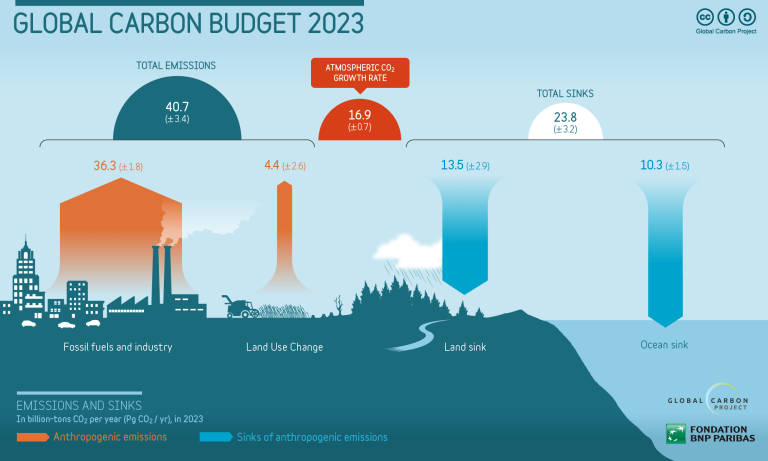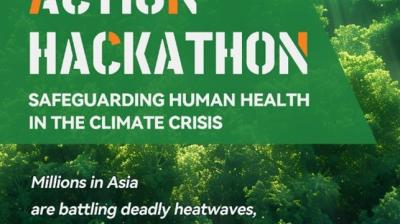Scientific reports at COP28 show we are heading in wrong direction

The annual Global Carbon Budget projects fossil carbon dioxide (CO2) emissions of 36.8 billion tonnes in 2023, up 1.1% from 2022.
The new report from the Global Carbon Project – one of the partners of WMO’s United in Science reports - complements WMO’s annual Greenhouse Gas Bulletin, which said that greenhouse gas concentrations in 2022 were at record level and continued to rise in 2023.
Driven by record greenhouse gas levels, 2023 is set to become the warmest year on record, according to WMO’s provisional State of the Global Climate 2023 report. Each decade since the 1990s has been warmer than the previous one, according to WMO’s Global Climate 2011-2020: a decade of accelerating climate change.
UNEP’s Emissions Gap report finds that under the current national climate plans, the world is on track to limit temperature rise to 2.9°C above pre-industrial levels this century.
The reports from the scientific community highlight the urgency and mounting challenges of controlling increasingly dangerous temperature increases and meeting the targets of the Paris Agreement on Climate Change.
“The science is clear: we need net zero carbon dioxide emissions by 2050,” said a statement convened by the WMO co-sponsored World Climate Research Programme and Future Earth.
It is fast becoming inevitable that with ongoing high levels of atmospheric greenhouse gas concentrations, global average temperature is likely to exceed 1.5°C, at least on a temporary basis. Minimising the magnitude and duration of overshooting 1.5°C is essential, according to the 10 Insights in Climate Science, which invites leading scientists from around the world to review the most pressing findings in climate change-related research. It is anchored by WCRP, the Earth League and Future Earth.
“Scientific findings from reports like these should inform the ambitious and evidence-based action plans needed in this critical decade of accelerated climate action,” said Simon Stiell, UNFCCC Executive Secretary.

Global Stocktake
WMO presented its reports on the State of the Global Climate and Greenhouse Gas Bulletin at Earth Information Day to inform decisions on the COP28 global stocktake. This aims to increase ambition and accelerate action on climate change by informing the next round of climate action plans due in 2025.
Mr Stiel described the global stocktake as “a grab bag of wish lists and heavy on posturing.”
“The key now is to sort the wheat from the chaff. If we want to save lives now and keep [the] 1.5 goal within reach, the highest ambition COP outcomes must stay front and center. At the end of next week, we need COP to deliver a bullet train to speed up climate action. We currently have an old caboose chugging over rickety tracks;” said Mr Stiel.
“But the tools are all there on the table, the technologies and solutions exist. It’s time for governments and negotiators to pick them up and put them to work,” he said.
According to the Global Carbon Budget, fossil CO2 emissions are falling in some regions, including Europe and the USA, but rising overall – and the scientists say global action to cut fossil fuels is not happening fast enough to prevent dangerous climate change, according to the Global Carbon Budget.
Emissions from land-use change (such as deforestation) are projected to decrease slightly but are still too high to be offset by current levels of reforestation and afforestation (new forests).
The report projects that total global CO2 emissions (fossil + land use change) will be 40.9 billion tonnes in 2023.
This is about the same as 2022 levels, and part of a 10-year “plateau” – far from the steep reduction in emissions that is urgently needed to meet global climate targets.
The research team included the University of Exeter, the University of East Anglia (UEA), CICERO Center for International Climate Research, Ludwig-Maximilian-University Munich and 90 other institutions around the world.











